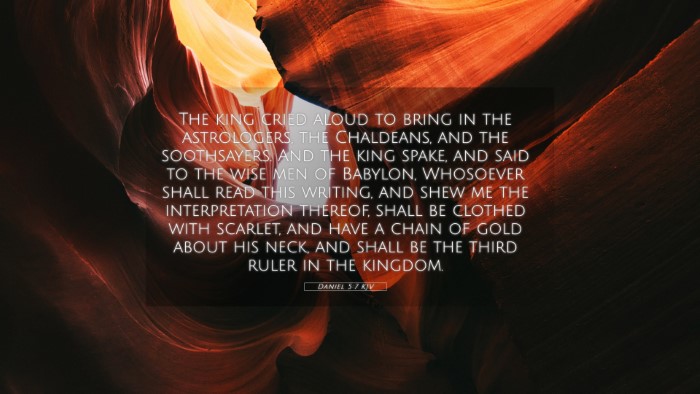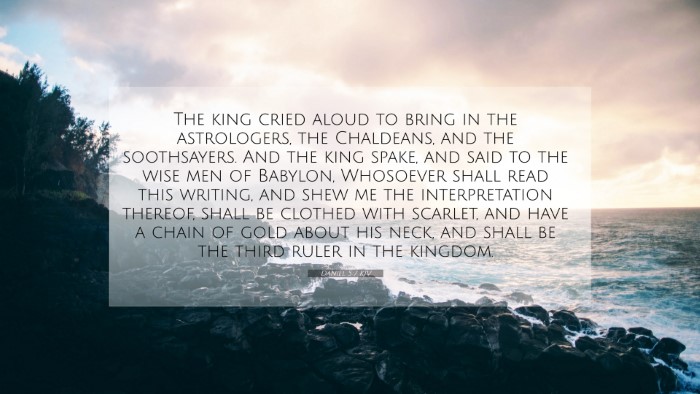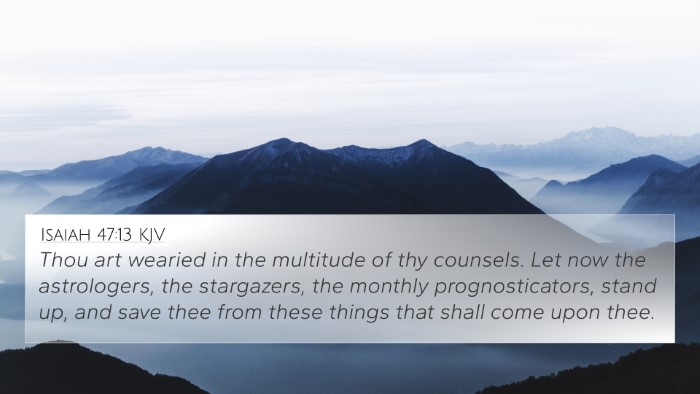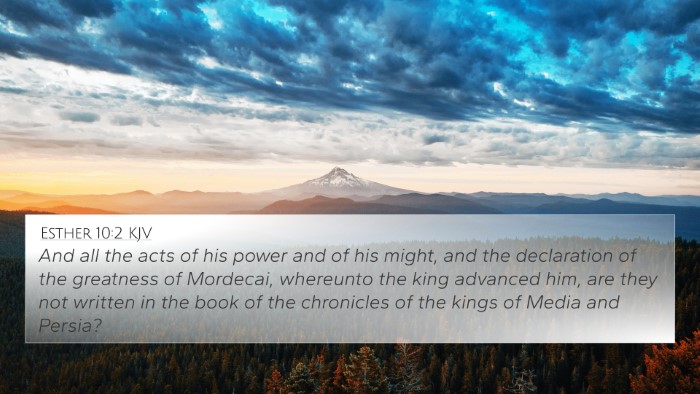Understanding Daniel 5:7
Daniel 5:7 reads: "The king cried aloud to bring in the astrologers, the Chaldeans, and the soothsayers. The king spake, and said to the wise men of Babylon, Whosoever shall read this writing, and show me the interpretation thereof, shall be clothed with scarlet, and have a chain of gold about his neck, and shall be the third ruler in the kingdom."
Summary of Daniel 5:7
This verse depicts a critical moment during Belshazzar's feast, highlighting the terror he feels after seeing the handwriting on the wall. The king's immediate response is to summon the wise men of Babylon for an interpretation, reflecting both his desperation and the importance of divine revelation in understanding God's messages.
Significance of the Verse
Daniel 5:7 illustrates the futility of relying on human wisdom in matters of divine significance. Belshazzar, despite being a king, recognizes that the interpretation of the mysterious writing requires a higher knowledge that his court's wise men cannot provide.
Commentary Insights
Matthew Henry's Commentary
Henry emphasizes the urgency and fear caused by the supernatural writing. He points out how Belshazzar turns to the astrologers, as they represent Babylon's reliance on worldly wisdom, which ultimately fails. The king's promise of riches and honor reflects his desperation to interpret the divine message. Yet, Henry suggests that true understanding comes from God alone, as he later reveals through Daniel.
Albert Barnes' Commentary
Barnes notes that this verse shows the impotence of the kings’ wise men when faced with divine mysteries. He highlights that Belshazzar’s approach demonstrates a common human trait—seeking worldly answers to heavenly questions, illustrating the need for divine insight for interpreting God’s words.
Adam Clarke's Commentary
Clarke points out the king's royal decree signifies the high stakes of the situation. He emphasizes the contrast between worldly authority and divine authority, noting that the wise men indeed were powerless to decipher the meaning behind God's message. Clarke interprets this as a reminder of the limits of human comprehension and the necessity of spiritual discernment.
Cross-References for Daniel 5:7
- Isaiah 47:12-13 - Illustrates the failure of Babylonian wisdom.
- Jeremiah 50:35 - Indicates God's judgment on Babylon and its wise men.
- 1 Corinthians 1:19-21 - God’s wisdom versus worldly wisdom.
- Daniel 2:27-28 - The power of God to reveal mysteries.
- Proverbs 3:5-6 - Trust in the Lord for understanding.
- Luke 21:15 - God’s provision of wisdom in times of need.
- James 1:5 - Asking God for wisdom.
- Revelation 17:5 - The connection of Babylon to the judgment of God.
- Acts 7:22 - Reference to wisdom in Egypt, points to worldly knowledge.
- Job 28:12-13 - The search for wisdom and its divine origin.
Thematic Connections in the Bible
The themes in Daniel 5:7 resonate across various Biblical texts, illustrating key principles like the distinction between human and divine wisdom, the importance of heeding God’s commandments, and the consequences of pride and idolatry. Each cross-reference provides insights into how God interacts with humanity, especially when they turn away from Him.
Tools for Bible Cross-Referencing
To further explore the connections between Bible verses, various tools can be used:
- Bible Concordance: An alphabetical list of words and their occurrences in the Bible.
- Cross-Reference Bible Study: Methodologies used to compare scriptures across the Bible.
- Bible Reference Resources: Guides and tools aiding in the understanding of scripture connections.
- Comprehensive Bible Cross-Reference Materials: Books and online resources designed for extensive cross-referencing.
- Bible Chain References: A systematic approach to link verses on similar subjects.
Conclusion
Daniel 5:7 serves as a pivotal moment in examining the limits of human understanding when confronted with divine revelations. It encourages readers to seek a deeper understanding of God’s messages through reliance on His word and the guidance of the Holy Spirit. Through the use of cross-references and tools for systematic study, believers can enrich their understanding of scripture and its connections throughout both the Old and New Testaments.























